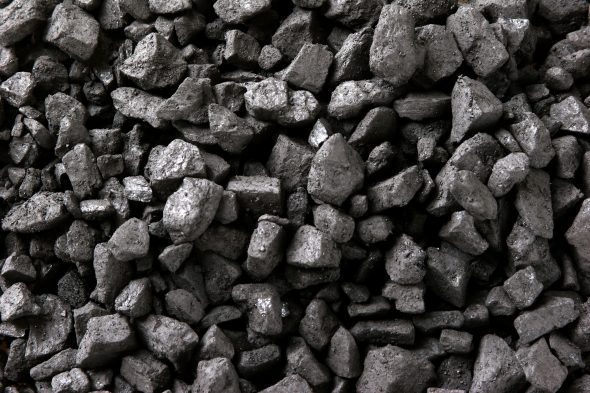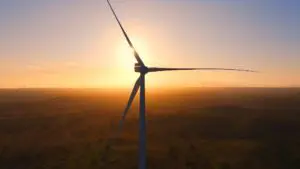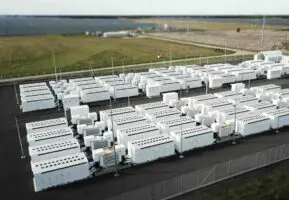The Intergovernmental Panel on Climate Change has for the first time delivered an estimate for the affordable carbon budget for the world, and it is bad news for the fossil fuel industry. Very bad news.
The IPCC’s 5th assessment report – its first since 2007 – says that the world has likely already consumed more than half its carbon budget, and has possibly used up to two thirds. Business as usual will exhaust the budget within 30 years.
It may mean that for the world to have the best chance to avoid the devastating impacts of runaway climate change, only around 10 per cent of the world’s known fossil fuel reserves can be exploited.
The IPCC report canvasses a range of scenarios that look at emissions levels and their impact on temperatures.
For the world to have a 66 per cent chance of limiting average global warming to 2°C, the global carbon budget is 1560 gigatonnes (GT) of CO2.
To give an even chance of that goal requires a budget of around 1210GT of C CO2. But to achieve a 66 per cent chance of limiting average global warming to 2°C restricts the budget to 1,00GT.
Given that the world has already emitted 531GT by 2011, that means half the budget has already been consumed. But if other factors are taken into account, such as change in land use and methane emissions, the budget may be as low as 800GT.
- Limiting the warming caused by anthropogenic CO2 emissions alone with a probability of >33%, >50%, and >66% to less than 2°C since the period 1861–188022, will require cumulative CO2 emissions from all anthropogenic sources to stay between 0 and about 1560 GtC, 0 and about 1210 GtC, and 0 and about 1000 GtC since that period respectively. These upper amounts are reduced to about 880 GtC, 840 GtC, and 800 GtC respectively, when accounting for non-CO2 forcings. An amount of 531 [446 to 616] GtC, was already emitted by 2011.
That means that well over 2/3 of the budget has already been consumed, and leaves only a maximum 270GT to be emitted. Given that the known fossil fuel reserves amount to 2,795GT, that means less than 10 per cent of the world’s oil, coal and gas reserves can be safely exploited.
The conclusions of the report are specially important for Australia, which is the largest exporter of thermal coal. The new conservative government has vowed to fast track approvals for large coal mines, and newly installed Industry Minister Ian Macfarlane, whose brief includes resources and energy, has said Australia should extract every molecule of gas that it can.
The scenarios painted by the IPCC are even more severe than those canvassed by private institutes, which estimated that between 60 and 80 per cent of the coal, oil and gas reserves of publicly listed companies could be classified as unburnable if the world is to achieve emissions.
That research by Carbon Tracker and the Grantham Research Institute on Climate Change and the Environment at London School of Economics and Political Science shows that 200 major listed companies own 762 billion tonnes of carbon dioxide (CO2) through their reserves of coal, oil and gas. These reserves currently supports share value of $4 trillion and service $1.5 trillion in outstanding corporate debt.
The World Resources Institute says that carbon budgets are important when designing the next set of emissions-reduction commitments. Otherwise, targets can be made for certain points in time (e.g. 2030) without planning to limit the overall amount of emissions that build up in the years in between.
“Many countries have already established 2020 emissions reduction goals without accounting for the overall carbon budget. This means emissions could rise until shortly before 2020 and then drop quickly. While the target would still be met, larger cumulative emissions would result than if emissions had steadily declined over the same period.
“Betting our carbon budget on a fast decline in emissions later will not only be costly, but may be technologically unfeasible given the inertia in our energy system (e.g. the number of years it takes to turn over a fleet of vehicles or retrofit a power plant). Later peak years could require unprecedented rates of decline.”
The 350.org organisation, which has led a campaign to stop the development of so-called “mega” coal mines, and is urging financial institutions to divest at risk fossil fuel assets, said the assessment was s a timely reminder of the “systemic risk” sitting on the books of extractive companies.
“Today’s release of the latest synthesis report by the (IPCC) …, sounds the alarm for immediate action on climate change and the pressing necessity for keeping much of known fossil fuel reserves in the ground, it said.
The Carbon Tracker Initiative, which first developed one of the most comprehensive assessments of carbon budgets, said the findings from the IPCC were consistent with the need to “identify unburnable carbon, wasted capital and stranded assets in the capital markets.
Carbon Tracker chairman Jeremy Leggett said significant fossil fuel reserves need to stay in the ground to limit climate change to a safe level. He said the report serves as timely reminder of the systemic risk sitting on the books of extractive companies.








